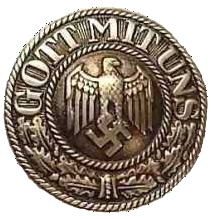IV.
SPEECH BY KALININ, PRESIDENT OF ALL-RUSSIAN CENTRAL EXECUTIVE COMMITTEE, ON THE MIDDLE PEASANTRY.
[Severnaya Kommuna, Apr. 10, 1919.]
Moscow, April 9 (Rosta).-At a plenum meeting of the Moscow Soviet of Workmen's and Red Army Deputies, the president of the Central Executive Committee, Comrade Kalinin, spoke:
"My election is the symbol of the union of the proletariat and the peasantry. At the present moment when all counter-revolutionary forces are pressing in on us, such a union is particularly valuable. The peasantry was always our natural ally, but in recent times one has heard notes of doubt among the peasants; parties hostile to us are trying to drive a wedge between us and the peasantry. We must convince the middle peasants that the working class, having in its hands the factories, has not attacked and will not attack the small, individual farms of the peasant. This can be done all the more easily because neither the old nor the new program of communists says that we will forcibly centralize the peasant lands and drive them into communes, etc. Quite to the contrary, we say definitely that we will make every effort to readjust and raise the level of the peasant economic enterprises, helping both technically and in other ways, and I shall adhere to this policy in my new post. Here is the policy we shall follow:
"We shall point out to province, district, and other executive committees that they should make every effort in the course of the collecting of the revolutionary tax, to the end that it should not be a heavy burden on the middle peasant; that they should make self-administration less costly and reduce bureaucratic routine. We shall make every effort so that the local executive committees shall not put obstacles in the way of exchange of articles of agriculture and of home consumption between cantons and peasants - that is, the purchase of farm and household utensils that are sold at fairs. We shall try to eliminate all friction and misunderstandings between provinces and cantons. We shall appeal to the local executive committees not only not to interfere with, but on the contrary to support, separate peasant economic enterprises which because of their special character have a special value. The mole of history is working well for us; the hour of world revolution is near, though we must not close our eyes to the fact that at the present moment it is all the more difficult for us to struggle with counter-revolution because of the disorganization of our economic life. Frequently they prophesied our failure, but we still hold on and we shall find new sources of strength and support. Further, each one of us must answer the question as to how to adjust production, carry out our enormous tasks, and use our great natural resources. In this field the unions of Petersburg and Moscow are doing very much, because they are the organizing centers from whose examples the provinces will learn. Much has been done in preparing products, but much still has to be done. We in Petersburg fed ourselves for three months, from the end of June to the beginning of September, on products from our Petersburg gardens."
Comrade Kalinin taking this matter of the gardens as an example, explains how one must approach the problem in a practical manner:
"We must define the relations between the Supreme Council of National Economy and local economic enterprises, and I am sure the Moscow Soviet will do everything in its power for the preparation of food products. The stronger we are the greater are the chances of a Western European revolution."














